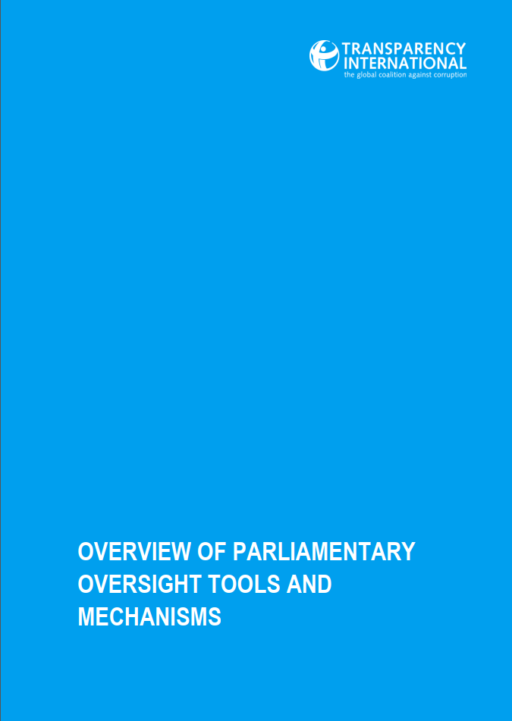Overview of parliamentary oversight tools and mechanisms
Description
Oversight is one of the three main functions of parliament, alongside law making and representation. It is through oversight that the parliament asserts the system of checks and balances on the executive branch of government and acts as the defender of citizens’ interests. It ensures that government policies and actions are both efficient and commensurate with the needs of the public, helps identify misconduct or deficits and allows for remedial actions against the executive. As parliamentarians represent the citizenship at large, legislative bodies are well positioned in terms of legitimacy to ensure transparency, accountability and effective government actions in all areas. In that sense, parliamentary oversight is a central means of ensuring good governance and holding the executive to account to prevent or sanction the abuse of authority.
To perform this important oversight function, parliaments require tools and mechanisms to hold government to account. This paper provides a comprehensive overview of these instruments, which include hearings, written or oral parliamentary questions, interpellations, summons, votes of no confidence, committees, post-legislative scrutiny, and oversight on government budget proposals and spending, among others. The tools and mechanisms are organised in terms of three main functions: political control, financial oversight and legislative scrutiny. By providing this menu of options, parliaments, CSOs and other stakeholders will be able to understand the available channels and opportunities that are in place in their contexts but not fully utilised, or that are not available and should be.
However, the mere existence of parliamentary oversight tools and mechanisms does not translate neatly into their effective use in holding government to account. Effective oversight requires careful consideration of the enabling factors that provide spaces for meaningful review, monitoring and supervision of government activities by parliament. These include opportunities for opposition and independent MPs to perform oversight that may include opposition or independent MPs as committee chairs through proportional distribution, special question time or debates, right of reply or possibility of attaching minority reports. It is also imperative that the parliament establishes and maintains good working relationships with other state and non-state actors providing oversight. Adequate and independent resources should be made available to parliament. Lastly, robust behavioural standards for parliamentarians, such as codes of conduct, conflict of interest policies, and assets and income declarations, also play a key role in enabling and ensuring effective oversight.
Authors
Jorum Duri, Fabiano Angélico, Cristiano Ferri and Jean-Patrick Villeneuve
Reviewer
Matthew Jenkins
Date
30/12/2022
Tags
 Download PDF
Download PDF
